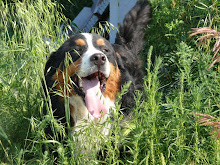Submitted by Broken record
It is often said that we should understand the other side’s viewpoint in disagreements. I think we can agree that this is good advice in all disagreements, regardless of the topic or the participants. In this essay, I explain my general understanding of animal exploitation advocates’ viewpoint. I limit the essay to the viewpoint of advocates of exploitation as opposed to those who exploit, but generally remain silent on the issue of whether we are justified in exploiting, harming, and killing innocent nonhuman beings. There are additional considerations regarding those who exploit, but do not actively advocate exploitation, which I will not address here. I believe these years of experience provide me with a reasonable basis for understanding and assessing the exploiters’ viewpoint, whether advocated for or not.
Almost all animal exploitation advocates like to consume and are in the habit of consuming the flesh (i.e. meat) and bodily fluids (e.g. milk, cheese and eggs) of nonhuman beings. Many animal exploitation advocates also like to shoot nonhuman beings for fun, experiment on them for money (ostensibly also for “scientific” reasons), hang on the wall or wear parts of nonhuman beings, use them for entertainment, or make money off the numerous ways we exploit them. These uses, individually and collectively, are doubtlessly the primary, if not the only, motive driving the arguments of animal exploitation advocates. Exploitation advocates all have one thing in common: self-interest and personal gain, no matter how great or trivial.
Animal exploitation advocates start with the notion, “I want to [fill in the blank: hunt, eat meat, consume dairy products, profit from exploitation, etc.]” and work from that self-interested idea to search for premises to support a conclusion "justifying" the desired use. Included in the premises found by exploitation advocates are some of the common cultural prejudices handed down to us from philosophers such as Rene Descartes, who told us that nonhumans are literally “automata” or “God’s machines” and Immanuel Kant, who told us that, because nonhumans are not as “rational” as us, nonhumans are “things” (never mind how irrationally humans often actually think and behave; and not to mention the complete irrelevancy of rational capacity in distinguishing beings from things). The cultural prejudices are even embedded in our language when we refer to nonhumans as “it” (even when we know the gender) instead of he or she and “that” instead of who. Well, obviously if nonhumans are really mere “automata” or “things”, then we certainly have no moral obligations to them. Under this distorted view, nonhuman beings are no different from rocks, tables, and trees. There are other dubious, even absurd, premises selected for their fine fit with the desired self-interested conclusion that nonhuman beings are morally irrelevant, but status as “things” is the most common and popular, both implicitly and explicitly, when animal exploitation advocates are working backwards from the assumed conclusion to the “premises.”
Why do people sometimes hold onto such distortions of reality as the notion that nonhuman beings are “things”? Why do some of us so blatantly ignore the evidence of sentience and moral worth? I think part of the reason can be described by an extreme form of the doctrine of William James called The Will To Believe. “The Will to Believe” is derived from James’ pragmatism whereby the epistemological standard of truth of a belief, when we lack evidence, is measured by how well it benefits us to hold the belief as true. If this is our standard of truth, then according to James’ pragmatism, we can ignore a lack of evidence regarding a self-benefiting belief and “will” ourselves to hold that belief. Animal exploitation advocates take James' "will to believe" further than James by ignoring contradictory evidence regarding a self-benefiting belief. How much we are willing to ignore contradictory empirical evidence, such as the morally relevant similarities of human and nonhuman beings, or the similarity of dogs to pigs, to hold a belief that personally benefits us is a fairly good measure of how radical our self-interested dishonesty is.
Intellectual honesty is what has led and will lead to greater social justice and moral progress in the world, whether the victims of injustice are human or nonhuman beings. If animal exploitation advocates embraced intellectual honesty by placing themselves in the inevitable and unenviable position of being thrown into the world as a nonhuman being subject to the cruel and exploitive whims of humans through no fault of their own and worked from that premise, applying a fair version of the Golden Rule and letting the conclusions result from the intellectually honest premises instead of letting bogus premises result from preconceived conclusions, then many animal exploitation advocates would change their minds, go vegan, and stand on solid epistemological and moral ground.
So it is not difficult to see the world from the exploitation advocates’ viewpoint, or the violent criminal’s viewpoint, or the tyrant’s viewpoint. All we need to do is place our self-interest at the center of our criteria for “determining” truth and reality to the exclusion of others’ interest, contradictory evidence, and intellectual honesty, and we’ve arrived at the essence of the exploitation advocates’ viewpoint.
Saturday, October 10, 2009
Subscribe to:
Post Comments (Atom)

The animal rights movement and their so called ethical philosophy on which it is based trivializes and demeans both the very idea of rights in general and the specific secular rights we enjoy under our constitutional democracy.
ReplyDeleteAnimal rights advocates all have one thing in common: self-interest and personal gain, no matter how great or trivial.
ReplyDeleteCan you give a definition of animal exploitation advocate please?
Broken Record, I have to ask.. Are you Dan Cudahy, or do you just plagiarize off of him?
ReplyDeletehttp://unpopularveganessays.blogspot.com/search/label/anti-animal rights